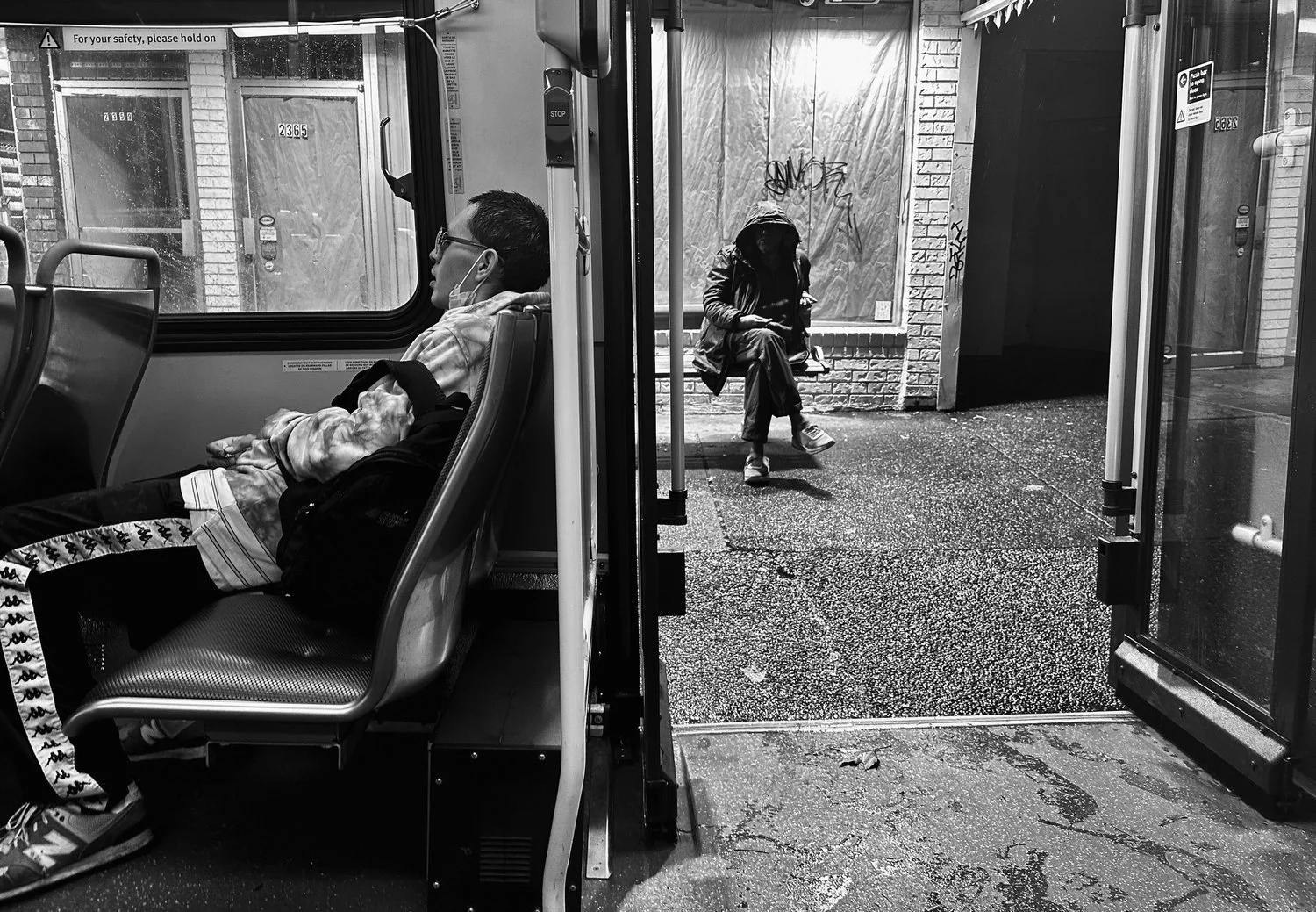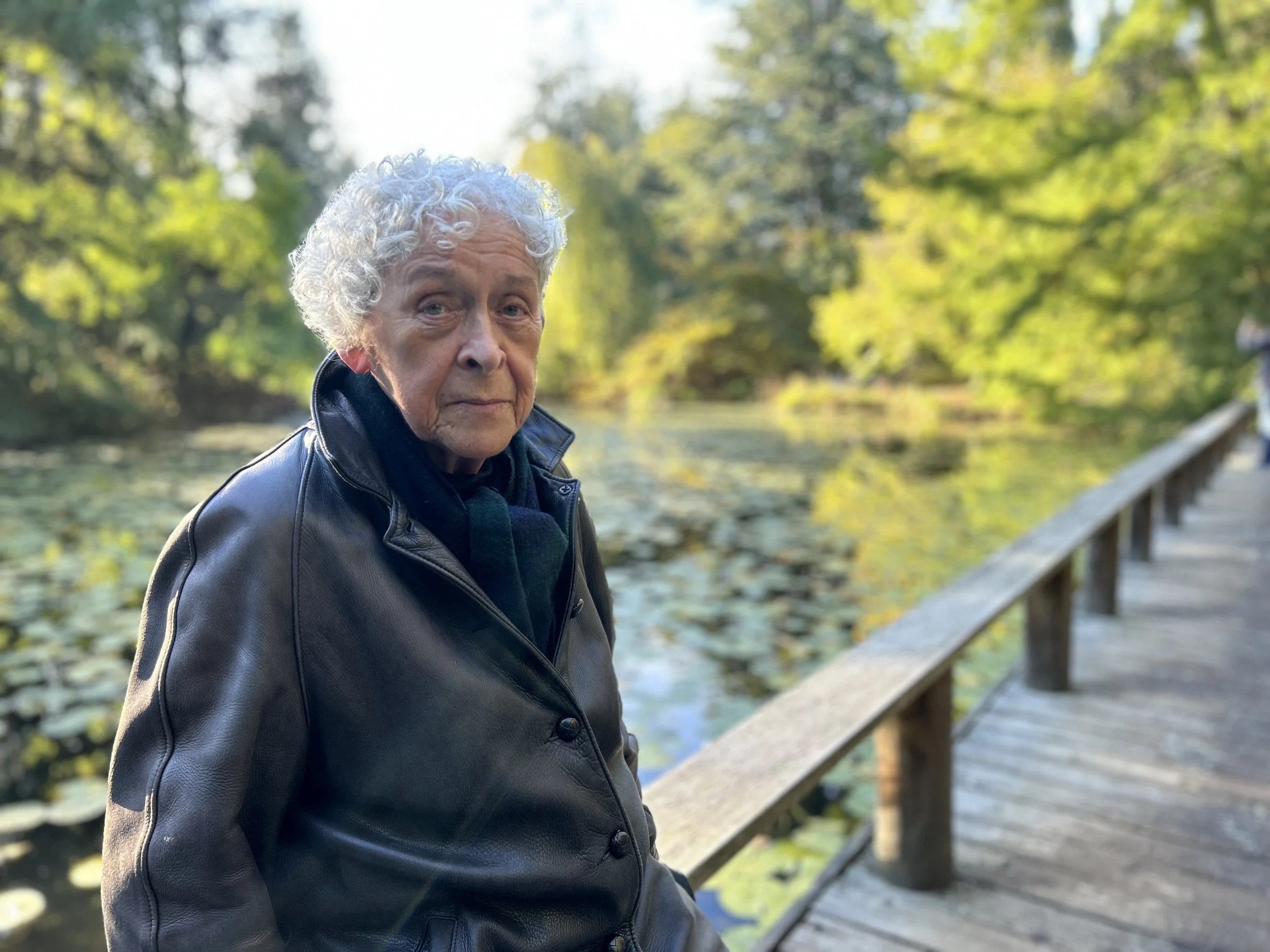Stir Q&A: Zsuzsi Gartner writes with brutal honesty, devastating humour in debut novel, The Beguiling
Vancouver plays a prominent role in the local author’s new book
The Beguiling author Zsuzsi Gartner has long strived to balance tragedy and comedy in her fierce fiction. Photo by Imogene Broberg-Hull.
VANCOUVER AUTHOR ZSUZSI Gartner is best-known for her short-story collections, which include the Scotiabank Giller Prize-shortlisted Better Living through Plastic Explosives and All the Anxious Girls on Earth.
Nine years after her last book, Gartner has just released her first novel. Like her other work, The Beguiling is fiercely imaginative and vividly descriptive, hilarious and devastating, and filled with weirdness. Its 13 chapters revolve around a woman named Lucy, whose dear cousin Zoltan trusted her with a troubling deathbed confession. From that point on, over a period of 13 years, she acts as a “flesh and blood Wailing Wall”, as perfect strangers share their deepest, darkest secrets with her.
Here, Gartner shares her thoughts on the end of the world, comedy and tragedy, fridge magnets, emojis, and more.
You obviously wrote this book well before all of the difficult events of 2020. Are there any aspects of the novel that take on new resonance given the times we are living in?
Only to the extent that in Part Three of The Beguiling end times are evoked. I’ve long had a rather apocalyptic frame of mind and this has often leaked into my fiction. There’s a line near the end of the novel: “The end of the world is always nigh, but no one actually believes it.” I think we can safely say that with the world-wide pandemic, the on-going refugee crisis, the climate crisis – including the choking air we’ve had here in B.C. due to the unprecedented fires south the border – and so much anger, hatred, and divisiveness everywhere there’s more reason than ever to believe that we are teetering on the brink of something altogether catastrophic.
In your two previous collections you set several stories in Vancouver, your long-time home, often with a certain amount of satire. We love the descriptions of the city, especially those of Commercial Drive. What aspects of the city, other than parts of the setting, do you think inform The Beguiling?
Vancouver has always been a character in my fiction, not just a back-drop or setting. Mountain View Cemetery is a big part of The Beguiling, Grandview Park and its rotating roster of protests is a leitmotif, as is the divide between East Van and the West Side, and oh, the rain, the relentless rain, and the mould, the aspirational nature of Vancouver versus the politically progressive elements (which sometimes tip into the ridiculous). So much Vancouver in here: Architecturally revived Vancouver Specials, The Donnelly Group, The Rio Theatre, the Commercial Drive Food Co-op, The Sylvia Hotel, CBC radio’s The Early Edition, a number of denizens of the Drive make cameos, Robson Street, the VAG, Japadog, the Second Narrows Bridge, the Stanley Park Seawall, and Zawa on the Drive. I could go on, but I will stop!
There’s a lot about Lucy that resembles your own biography. Is this your most personal book? Do you like to keep people guessing about what’s true and what’s not?
Yes and no. This would not be obvious to anyone reading The Beguiling, but Elena Ferrante’s Neapolitan Quartet had a big influence on my writing of my narrator, Lucy. Her novels made me want to write as brutally honestly as I could about motherhood, love, the way people move through the world making their dreadful (intentional and unintentional) mistakes. But Lucy is not even remotely me in the personal and familial details. Exhibit A: Lucy leaves a one-year-old child and her husband and starts a new life in another city. I adore my son, now almost 21, and my husband, and would sooner drive a stake through my heart than live without them. Lucy is also over a decade younger than me and so grew up in a different time with different influences. She is the hard ass I sometimes wish I was.
Your work is known for being very dark but very funny. How do you go about balancing darkness and humour in your writing?
There’s an part about a third of the way through The Beguiling where Lucy visits her cousin’s grave and wonders what she would like on her own tombstone: “Something simple, maybe a relief of one of those tragedy/comedy masks and the words: mea maxima culpa.” Tragedy & comedy – that is life on earth writ large. Striking the right balance between the darkness and levity comes during my revisions when I have to cut out a lot of the jokiness. I’ve spent my entire writing life trying to balance comedy and tragedy. I want people to laugh (and think) and then break their hearts. Some of my favourite authors do this so well – get you laughing before delivering the punch to the gut. George Saunders and Lorrie Moore, to name two.
Do you, like Lucy, hate emojis? Do you ever use them or have one that shows up often in messages you send out?
I dislike them in work-related emails, but use them when texting. When I was teaching in the Optional-Residency MFA Program at UBC I banned them from our on-line discussions. “You’re writers,” I told my students, “use your words to convey tone.” I’ve softened on emojis over the last few years: I love the purple heart and the freaked out face with its hair standing on end and freaky little insects. I like using them for visual riddles – texting my husband a string of emojis representing movie titles for him to guess.
What’s taped to your fridge right now?
Our fridge door is a mess (almost completely obscured, unlike Lucy’s austere one) – but we never use tape – magnets all the way! A few of the items, mostly mundane: grocery list (I see we need peanut butter, oyster sauce, sweet smoked paprika, #2 coffee filters, and Sexy Stud dog shampoo), the city’s recycling and garbage schedule, postcards, a fun photo of my husband’s band (a shout out to Step Out, Sister!), wine labels, a beer bottle opener resembling a lobster claw, a magnetized little cookbook of “Irish Stout Recipes,” and one item that appears in The Beguiling -- big, round magnet I bought on the Drive from a Tibetan Buddhist artist featuring a quote from the Dalai Lama: “Be kind whenever possible. It is always possible.” (To which Lucy replies, “But not fucking easy. Although I’m sure he knew that all too well or he wouldn’t have issued the challenge.”)
In a shameless nod to the New York Times Book Review, we have to ask – what Canadian writers, living or dead, would you invite to a socially distanced dinner party of six people?
The first thing that occurs to me is that they would all have to be omnivores as it’s such a grind creating a feast for people with various food aversions. I’m going to invite writers I love who are no longer with us because I am curious about their take on the afterlife: Mordecai Richler (but he probably wouldn’t come because I’d have to ask him to smoke outside); Al Purdy (but ditto on the smoking); Leonard Cohen; Mavis Gallant; L.M. Montgomery; and Keith Harrison (he was a friend, a brilliant conversationalist about books and films and life, enjoyed a great meal, and I miss him).
The pandemic means there’s no big book launch, at least not one in person, which must be disappointing. What Beguiling events do you have coming up?
I’m doing a solo virtual event with Calgary Wordfest’s awesome new ImagineOnAir on September 24. (Details are here.)
On October 8, the super groovy new book shop and literary-arts space on Granville Island, Upstart & Crow, is hosting my Vancouver launch. There will be a fun interactive contest with prizes, and everyone buying a copy of the novel through Upstart & Crow will also receive a limited-edition Beguiling face mask.
And I’ll be on a panel at the Victoria Writers Festival on Saturday, October 3: Simply Unbelievable: Fresh Fiction for Unfathomable Times.















